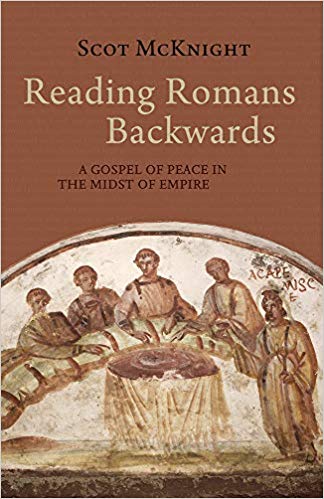BEN: pp. 120ff. It’s good to see that pistis Christou is taken to mean the faithfulness of Christ. I wonder if you agree with Sander’s latest book that when Paul says ‘righteoused’ he is not using the language of the law court, and so forensic justification, but rather discussing God setting right a human being, which includes both being given right standing and being made right, whole, holy? God wants his righteous character replicated in us. Comments?
SCOT: I can’t imagine a Jewish world in which being made right/righteoused does not mean something like what you good Wesleyans mean by sanctification.
BEN: PP. 125ff. The discussion of boasting is helpful, especially with the contextual material from the res gestae and the progymnasmata. Boasting was a major part of that whole world. I wonder if you had thought about the inverted boasting that Paul does in 2 Cor. following the rules of ‘inoffensive self-praise’ as outlined by Plutarch and others? Paul’s beef is not with boasting per se, but rather with self-congratulatory boasting, ego-centric boasting? Comments.
SCOT: My emphasis is on the expectation of honor and glory and boasting as part of what it means to be a genuine man on the cursus honorum in Roman society.
BEN: Your chapters on Rom. 5-8, and especially on the generic or universal aspects of those chapters are especially helpful. It is interesting that in a long excursus in Lightfoot’s 2 Corinthians commentary, he details how when Paul says ‘we’ it is never just a cipher for ‘I’. It really means ‘we’ and is not like the Queen’s royal ‘we’. I wonder whether or if this insight would help your argument. I think it is helpful to emphasize, as you do, both the corporate and individual aspects of the identity Paul is talking about—we are beings in relationship first, but also beings who can be individuated. The difference in our culture, is that we talk about building community, whereas in Paul’s world corporate personality was primary. Comments?
SCOT: I so want those pronouns in Romans 5-8 to be specific but I’m not convinced so I opt for general orientations: We is not politeness (as JB Lightfoot says) but is a pastoral moment of identification with his audience. At one time I was exploring the themes of Romans 5-8 through particular pronouns but in the end they so overlap… it was not possible to distinguish them that much. Then there’s the Ego of Romans 7!












